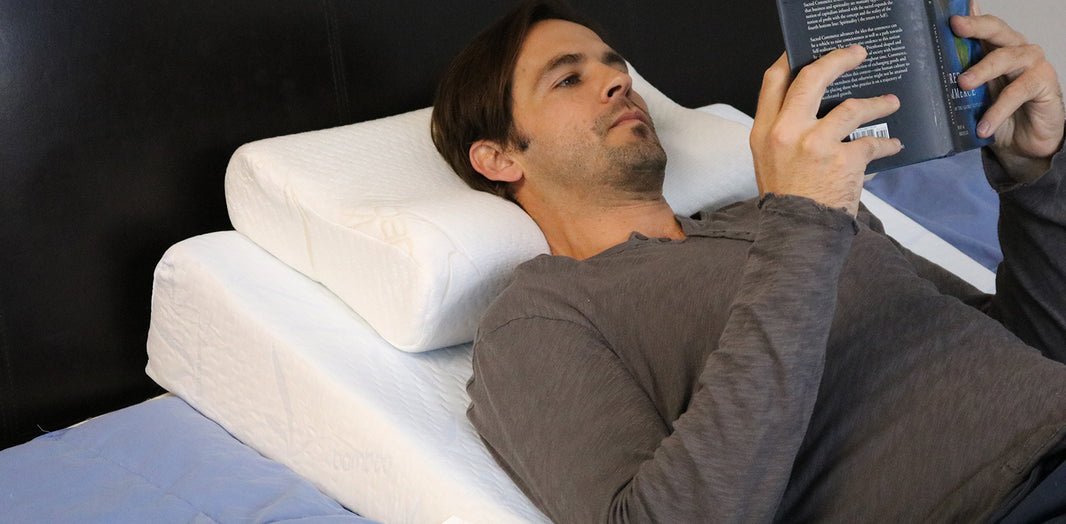Have you ever woken up in the middle of the night with a sudden, sharp pain in your calf? If so, you're not alone. Many people experience cramps in their legs at night, and it can be a frustrating and painful experience. In this article, we'll explore the causes of leg cramps at night and discuss some treatments that may help alleviate the symptoms.
What are Leg Cramps?
Leg cramps are sudden, involuntary muscle contractions that can be painful and uncomfortable. They can occur in any muscle, but are most common in the calves, feet, and thighs. Leg cramps can happen at any time, but they're most likely to occur at night, when you're resting.
Difference Between Nocturnal Leg Cramps and Restless Legs Syndrome
If you experience uncomfortable sensations in your legs at night, you may be wondering if you have nocturnal leg cramps or restless legs syndrome (RLS). While both conditions share some similarities, they are actually distinct disorders with different symptoms.
Nocturnal leg cramps are often misdiagnosed as RLS because they can also cause discomfort in the legs at night. However, some of the key differences between the two disorders include the type of discomfort experienced and the accompanying symptoms.
If you have nocturnal leg cramps, you may experience calf or foot cramps during the night that cause intense pain. The pain is often sharp and lasts for less than 10 minutes, but soreness can linger for hours or days afterwards. The cramping can also disrupt your sleep and cause distress around falling asleep.
On the other hand, RLS is characterized by the desire or urge to move your legs in the evening. You may also experience unpleasant or painful sensations in your legs, discomfort that worsens in the evening or night, and relief found by walking or stretching. These symptoms may worsen with lack of exercise or rest.
Because the symptoms of nocturnal leg cramps and RLS can be similar, it can be challenging for your doctor to diagnose which condition you have. To help with the diagnosis process, keep track of your symptoms and bring detailed notes to your appointment.
What Causes Leg Cramps at Night?
There are several potential causes of leg cramps at night. These include:
Dehydration
Dehydration can cause muscle cramps, including leg cramps. If you're not drinking enough fluids, your muscles may not have enough water to function properly.
Electrolyte Imbalances
Electrolytes are minerals like potassium, calcium, and magnesium that are important for muscle function. If your body doesn't have enough of these minerals, you may experience muscle cramps.
Overexertion
If you've been exercising or working out, you may be more prone to leg cramps at night. This is because your muscles are fatigued and may be more likely to cramp.
Medications
Certain medications, such as diuretics and statins, can increase the risk of leg cramps.
Medical Conditions
Medical conditions such as diabetes, peripheral artery disease, and kidney disease can all increase the risk of leg cramps.
Pregnancy
Pregnant women are more likely to experience leg cramps at night, especially in the third trimester.
Poor Sleep Posture: If you're sleeping in a position that puts pressure on your legs or feet, you may be more likely to experience leg cramps at night.
How to Treat Leg Cramps at Night
If you're experiencing leg cramps at night, there are several treatments that may help alleviate the symptoms. These include:
Stretching
Gently stretching the affected muscle can help alleviate the cramp. For example, if you're experiencing a cramp in your calf, you can try standing up and placing your weight on the affected leg, then bending your knee slightly.
Massage
Massaging the affected muscle can also help alleviate the cramp. Use your hands to gently knead the muscle, applying pressure until the cramp subsides.
Heat or Cold Therapy
Applying heat or cold to the affected muscle can help relax the muscle and alleviate the cramp. You can use a hot or cold compress, or take a warm bath or shower.
Hydration
Drinking plenty of fluids can help prevent leg cramps caused by dehydration.
Electrolyte Replacement
If your leg cramps are caused by an electrolyte imbalance, replacing these minerals may help alleviate the symptoms. You can try eating foods that are high in potassium, calcium, or magnesium, or taking supplements.
Medications
In some cases, your doctor may prescribe medications such as muscle relaxants or pain relievers to help alleviate leg cramps.
Preventing Leg Cramps at Night
Preventing leg cramps at night can be challenging, but there are several steps you can take to reduce your risk. These include:
Stretching
Regular stretching can help prevent leg cramps by improving muscle flexibility.
Staying Hydrated
Drinking plenty of fluids can help prevent leg cramps caused by dehydration.
Eating a Balanced Diet
Eating a balanced diet that includes foods high in potassium, calcium, and magnesium can help prevent leg cramps caused by electrolyte imbalances.
Exercising Regularly
Regular exercise can help prevent leg cramps by improving muscle strength and flexibility.
Maintaining a Healthy Weight
Being overweight or obese can increase the risk of leg cramps. Maintaining a healthy weight through diet and exercise can help reduce this risk.
Avoiding High Heels
Wearing high heels can put strain on your calves and increase the risk of leg cramps. Avoiding high heels or wearing them only for short periods of time may help prevent cramps.
Improving Sleep Posture
Sleeping in a position that puts less pressure on your legs or feet may help prevent leg cramps at night. For example, sleeping with a pillow under your knees can help alleviate pressure on your calves.
How a good pillow can help you with leg cramps at night
A good pillow can indeed help with cramps in legs at night. While there are several factors that contribute to the development of leg cramps, including dehydration, electrolyte imbalances, and medical conditions, sleep posture is one of the most common and easily modifiable factors that can be addressed to help alleviate the symptoms of leg cramps.
When we sleep, the position we are in can put pressure on certain muscles and joints, leading to discomfort and pain. Sleeping in a position that puts pressure on the legs or feet can increase the risk of leg cramps. Therefore, finding a good pillow that helps improve sleep posture can be an effective way to prevent leg cramps at night.
One type of pillow that has been found to be particularly helpful for leg cramps is the leg elevation pillow. This type of pillow is designed to elevate the legs while you sleep, reducing pressure on the muscles and joints in the legs and feet. By improving circulation and reducing inflammation, a leg elevation pillow can help prevent leg cramps and reduce the severity of symptoms in those who already experience them.
Another type of pillow that can be helpful for leg cramps is the body pillow. A body pillow can be used to support the legs and prevent them from falling into positions that can cause cramping. This can be especially helpful for those who sleep on their sides or who tend to move around a lot during the night.
When selecting a pillow to help with leg cramps, it is important to choose one that is comfortable and supportive. A pillow that is too soft or too firm may not provide adequate support and can exacerbate the problem. Additionally, the pillow should be designed specifically for leg elevation or body support to ensure that it is effective in preventing leg cramps.
When to See a Doctor
In most cases, leg cramps at night are not a cause for concern and can be managed with self-care measures. However, if you're experiencing frequent or severe leg cramps, or if they're interfering with your sleep or daily activities, you should see a doctor. Your doctor can help determine the underlying cause of your leg cramps and recommend appropriate treatment.
In addition, if you have any other symptoms along with leg cramps, such as swelling, redness, warmth, or tenderness in the affected leg, it may indicate a more serious condition that requires prompt medical attention. These symptoms could be signs of deep vein thrombosis (DVT), a blood clot that forms in a deep vein, usually in the leg. DVT is a potentially life-threatening condition that can cause complications such as pulmonary embolism (PE), a blockage in the lungs, if the clot breaks off and travels through the bloodstream.
Other possible causes of leg cramps that require medical evaluation include nerve damage, muscle disorders, or circulatory problems. It's important to consult a doctor if you have any concerns about your leg cramps to rule out any serious underlying conditions and receive proper treatment.








